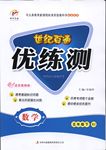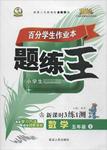题目内容
His lecture will give you some idea ______ what the theory of relativity means.
- A.on
- B.for
- C.of
- D.to

 世纪百通主体课堂小学课时同步达标系列答案
世纪百通主体课堂小学课时同步达标系列答案 世纪百通优练测系列答案
世纪百通优练测系列答案 百分学生作业本题练王系列答案
百分学生作业本题练王系列答案One day a few years ago, a very funny thing happened to a neighbor of mine. He is a teacher at one of London's big medical schools. He had finished his teaching for the summer term and was at the airport on his way to Russia to give a lecture.
He had put a few clothes and his lecture notes in his shoulder bag , and he had put Rupert, the skeleton (人体骨架)to be used in his lecture, in a large brown suitcase. At the airport desk, he suddenly thought that he had forgotten to buy a newspaper. He left his suitcase near the desk and went over to the shop.
When he got back, he discovered that someone had taken his suitcase by mistake. He often wonders what they said when they got home and found Rupert.
【小题1】Who wrote the story?
| A.Rupert's teacher. | B.The neighbor's teacher. |
| C.A medical school teacher. | D.The teacher's neighbor. |
| A.He needed it for the summer term in London. |
| B.He needed it for the lecture he was going to give. |
| C.He wanted to take it to Russia for medical research. |
| D.He wanted to take it home as he had finished his teaching. |
| A.The skeleton went missing. | B.The skeleton was stolen. |
| C.The teacher forgot his suitcase. | D.The teacher took the wrong suitcase. |
| A.He was angry. | B.He thinks it very funny. |
| C.He feels helpless without Rupert. | D.He feels good without Rupert. |
| A.The teacher got back the suitcase but not Rupert. |
B.The teach er got back neither the suitcase nor Rupert. er got back neither the suitcase nor Rupert. |
| C.The teacher got back Rupert but not the suitcase. |
| D.The teacher got back both the suitcase and Rupert. |
书面表达(满分25分)
假设你是林华,福建某中学高三(8)的学生。本月是你们学校的英语月,全校开展了丰富多彩的活动。上周五你们有幸邀请厦门大学外籍教师Hudson教授给你们班开了一个题为“How to Improve English ”的英语讲座,请你根据提示和下面表格的内容,用英语为校报写一篇120词左右的报道。
| Professor Hudson’s lecture | begin with an interesting story…, attract… |
| students’ performance and evaluation | take an active part in … think highly of… |
| lessons from his lecture | … |
注意:
1. 报道的开头已经给出,不计入总词数;
2. 可根据内容要点适当发挥,使行文连贯;
3. 行文中不得提及考生所在学校;
4. evaluation评价。
This month is our school’s English month. We held all kinds of colorful English activities. And we had the honor of inviting Professor Hudson,
_________________________________________________________________________________
_________________________________________________________________________________
By Lin Hua, Class8, Grade 3
